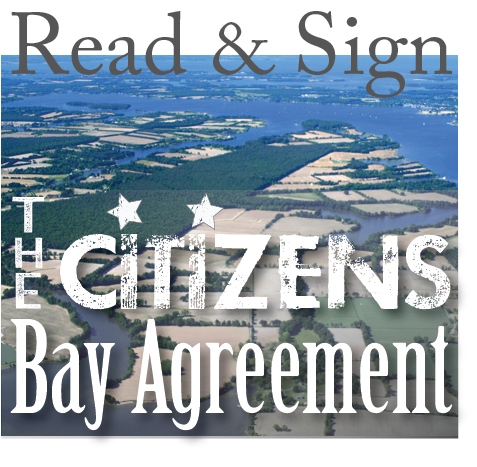Chesapeake Bay Action Plan
After decades of effort, the voluntary, collaborative approach to restoring the health and vitality of the Chesapeake Bay— the largest estuary in the United States—has not worked and, in fact, is failing.
A diverse group of 57 senior scientists and policymakers have joined forces to save the Bay. This is our plan.
The Hudson/Perdue Chicken Waste Case — What We’ve Already Learned
A decision is expected soon in the highly publicized federal lawsuit Waterkeepers Alliance, Inc., vs. Alan and Kristen Hudson Farm and Perdue Farms, Inc. The outcome is anyone’s guess, but already testimony from the trial has made clear that Maryland’s effort to oversee and enforce nutrient management plans needs more muscle.
War on Rural Maryland?
The costs of reversing the degradation of our rivers, streams and the bay are significant and will require sacrifices from all counties, urban and rural. We need to work together to find more cost-effective ways to reduce pollution, including pollution from the Conowingo dam. Driving a wedge between urban and rural counties by promoting a culture of victimhood will hurt that effort.
The Fictional War on Family Farmers
One reality is that nobody wants families to be forced to stop farming. A second widely-understood reality is that the single greatest force driving farm families away from their traditional lives is the ever-growing domination of food production by huge companies like Perdue, Inc.
Senior Scientists And Policmakers For The Bay Join With Other Conservation Groups In Urging Better Regulation Of Tons Of Raw Animal Manure.
After eight months of negotiations and efforts to strengthen the regulations as we have advocated in our Bay Action Plan, new regulations were proposed and published in the Maryland Register on June 29. These regs are still much too weak and fall well short of the Senior Scientists and Policymakers for the Bay science-based positions. Representatives of our group had discussed our positions in detail with the Bay Cabinet at a meeting last September. We have continued to advocate these common sense positions and members of our group sent detailed letter to the Governor and published an Op-ed in the Baltimore Sun detailing the need for better management of animal manure and other nutrients.
No more half-measures for the bay: O’Malley administration’s proposed regulations on agricultural waste aren’t strong enough
After 28 years of formal efforts to restore the Chesapeake Bay, the single most successful efforts have been in curbing bay-choking nutrient pollutants from sewerage treatment plants, so-called “point sources” from pipes. Maryland has been a leader in these efforts with passage of the Flush Tax in 2004 and its extension in 2012. This will assure that 69 of the largest Maryland plants will be removing both phosphorus and nitrogen to very low levels, approaching the limits of technology. These efforts are paid for by most Marylanders by fees on water and sewer bills.
Weak Regulation of Manure Proposed
(Posted by Gerald Winegrad)
The Maryland Department of Agriculture announced the development of weakened proposed regulations that are well short of the positions advocated by the Senior Scientists and Policymakers for the Bay to address the pollution from millions of tons of chicken and other farm animal manure that is poisoning ground and surface waters. Some key elements of the proposals don’t even go into effect until 2016, allowing four more years to do just some of what has been required for land application of treated human sludge since 1985!
The Session of the Bay
(Posted by Erik Michelsen)
In preparing for the 2012 Maryland Legislative session, the memories of largely unproductive sessions for the environment in 2010 and 2011 were very fresh. The combined environmental community – the Clean Water, Healthy Families coalition – resolved to be more focused, to pursue a direct request of legislators, and to focus on goals that would have a measurable impact on improving water quality.
Perdue’s PR Campaign of Deceit
(Posted by Bob Gallagher)
A group of legislators, following a script conceived by the public relations machine of Perdue and the Maryland Farm Bureau, have joined in Perdue’s unprecedented effort to derail an environmental lawsuit that has singular importance for the Chesapeake bay watershed. The effort is unprecedented in the extent to which Perdue and its enablers are attempting to use the media and the political process to win a case that they have as yet been unable to win in court.
Here is the story.
We are senior Chesapeake Bay scientists and policymakers from Maryland, Virginia and Pennsylvania who have concluded that after decades of effort, the voluntary, collaborative approach to restoring the health and vitality of the largest estuary in the United States has not worked and, in fact, is failing. Our group unanimously recommends that all states draining into the Chesapeake Bay adopt our 25 action items in their Watershed Implementation Plans (WIP) and implement them to improve the Bay’s water quality and to meet the requirements of the Clean Water Act.
Sign up for news & updates from Patuxent Riverkeeper
